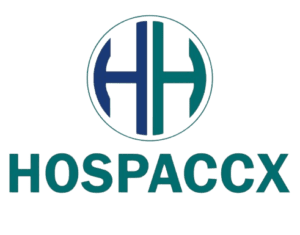By Hospaccx Healthcare Business Consulting
In the ever-evolving healthcare industry, building a hospital is not merely about constructing a facility; it’s about creating a sustainable ecosystem that addresses the needs of the community it serves. At Hospaccx Healthcare Business Consulting, we understand that the foundation of every successful hospital project lies in a detailed Market demand assessment, which forms a core part of our hospital feasibility study approach.
Why Assess Market Demand for Hospital Services?
A hospital thrives when it meets real and pressing needs. A feasibility study helps uncover:
- Service Gaps: Identifying underserved populations or medical specialties.
- Demographic Insights: Analyzing population health needs, age groups, and economic conditions.
- Market Competition: Evaluating existing players to understand where your hospital can stand out.
- Financial Sustainability: Projecting the expected patient footfall and revenue, ensuring the hospital is economically viable.
By focusing on these elements, you can avoid costly mistakes like overbuilding or launching services that don’t resonate with local healthcare demands.
How Hospaccx Conducts a Feasibility Study
Our feasibility study process is a blend of industry expertise, data-driven insights, and hands-on research. Here’s how we approach it:
- Defining the Vision
We begin by understanding your goals:
- Is the focus a multi-specialty hospital or a niche specialty center?
- What population segments or geographies do you aim to serve?
- Market and Demographic Analysis
Our team gathers detailed demographic data, focusing on:
- Population size, growth rate, and socioeconomic status.
- Health indicators like disease prevalence, healthcare utilization, and life expectancy.
- Competitor and Service Gap Analysis
Using GIS mapping and on-ground research, we:
- Analyze the existing healthcare ecosystem.
- Pinpoint underserved areas and unmet needs.
- Demand Forecasting
Leveraging advanced tools and predictive analytics, we estimate future demand for:
- Bed occupancy rates.
- Diagnostic, surgical, and outpatient services.
- Financial and Operational Planning
We help you project:
- Capital investments and operating costs.
- Revenue streams, pricing models, and profitability.
- Risk Assessment and Strategy Development
Our team identifies potential challenges—whether regulatory, financial, or operational—and crafts mitigation strategies tailored to your project.
Assessing Market Demand for Hospital Services: A Feasibility Study Approach
In the dynamic world of healthcare, building a hospital is a complex endeavor requiring strategic foresight and meticulous planning. A cornerstone of this process is assessing market demand for hospital services through a feasibility study. This critical step helps healthcare investors, planners, and administrators make informed decisions, ensuring the project is sustainable and aligns with community needs.
Understanding the Importance of Market Demand Assessment
Healthcare is a need-driven industry where the success of a hospital hinges on its ability to address the medical needs of its target population. A robust market demand assessment reveals:
- Gaps in Existing Services: Identifying unserved or underserved areas and specialized medical needs.
- Demographic Trends: Understanding the population’s age, income levels, disease prevalence, and healthcare utilization patterns.
- Competitor Landscape: Evaluating existing hospitals, their capacities, specialties, and service quality.
- Financial Viability: Estimating patient footfall and revenue potential based on the projected demand for services.
Without an accurate understanding of these factors, the project risks over- or underestimating the required infrastructure, leading to operational inefficiencies or financial losses.
Key Steps in Conducting a Hospital Feasibility Study
A comprehensive hospital feasibility study involves several stages, combining data-driven analysis with strategic insights:
- Define Objectives and Scope
- Clarify the purpose: Is the focus on a general hospital, a specialty center, or a multi-specialty facility?
- Outline the study’s geographic area and population segments to be analyzed.
- Demographic and Epidemiological Analysis
- Collect and analyze data on the population’s size, growth rate, age distribution, and socioeconomic status.
- Study disease patterns and healthcare trends, such as increasing lifestyle diseases or aging-related health issues.
- Competitor and Gap Analysis
- Map existing healthcare providers, their services, bed capacities, and patient satisfaction levels.
- Identify areas with long patient wait times, lack of advanced technologies, or unavailability of specialized care.
- Demand Forecasting
- Use historical and current data to project future healthcare needs.
- Evaluate key metrics, such as patient visits, bed occupancy rates, and procedural volumes.
- Stakeholder Consultation
- Engage local healthcare professionals, community leaders, and government officials to validate findings and gain insights into regional healthcare dynamics.
- Financial and Operational Projections
- Estimate capital and operational expenses.
- Project revenues based on demand forecasts, pricing models, and payer mix (insurance vs. self-pay).
- Risk Assessment and Mitigation
- Identify risks such as changing regulations, technological disruptions, or demographic shifts.
- Develop strategies to address potential challenges.
Tools and Techniques for Market Demand Assessment
Modern feasibility studies employ advanced tools to ensure accuracy and reliability:
- GIS Mapping: For analyzing geographic distribution of healthcare facilities and populations.
- Surveys and Focus Groups: To gather community feedback on unmet healthcare needs.
- Predictive Analytics: Leveraging AI to forecast future demand trends.
- Benchmarking: Comparing proposed services and infrastructure against industry standards.
Why Choose Hospaccx for hospital feasibility?
At Hospaccx Healthcare Business Consulting, we bring years of experience in hospital planning, design, and business consulting to help you make informed decisions. Our feasibility studies are customized, actionable, and aligned with your vision.
We don’t just analyze data; we offer end-to-end support—from assessing demand to helping you build, operationalize, and grow your healthcare facility.
Conclusion
Building a hospital is a significant investment—both financially and socially. A well-executed hospital feasibility study ensures that your hospital aligns with community needs, mitigates risks, and achieves long-term success.
Ready to assess your hospital project’s potential? Let Hospaccx help you turn your vision into reality. Contact us today and take the first step toward building a healthcare facility that truly makes a difference.
If you are looking for a hospital feasibility study or require expertise in hospital market and financial feasibility analysis, our team at Hospaccx Healthcare Business Consulting is here to assist you. Please feel free to connect with us at info@hospaccxconsulting.com. We look forward to supporting your healthcare venture with precision and professionalism.
Hospaccx Healthcare Business Consulting
Transforming healthcare, one project at a time.

